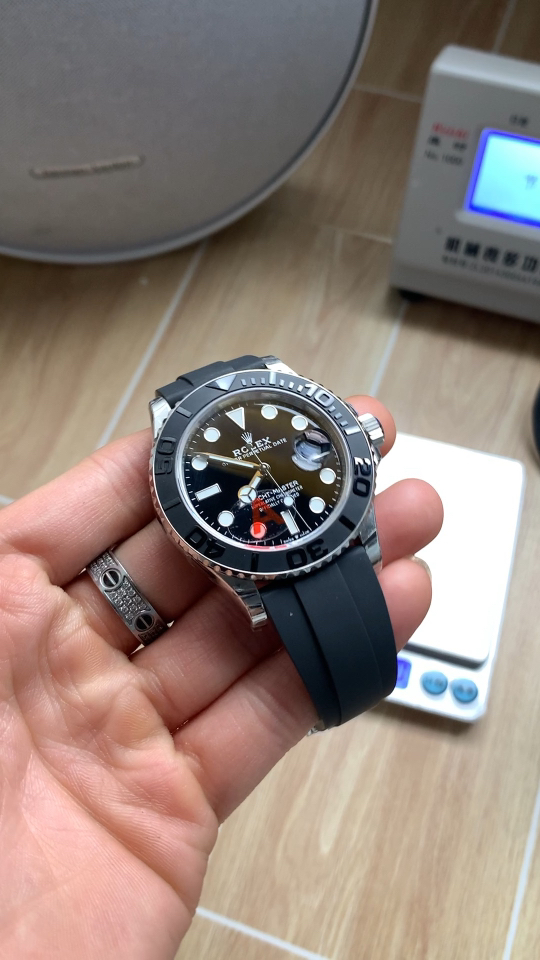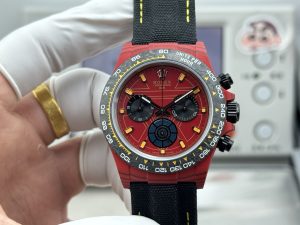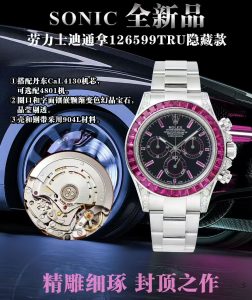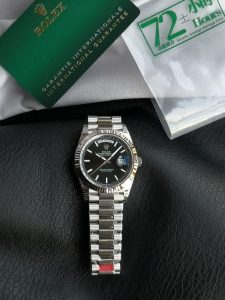In the realm of luxury timepieces, the VS Factory’s Platinum Yacht-Master v3 emerges as a stellar example of precise craftsmanship combined with economic accessibility. Weighing approximately 148 grams, with a case diameter of 42mm and a thickness of around 11mm, this replica embraces sophistication while challenging the very notions of exclusivity associated with its authentic counterparts. Powered by the reliable Dandong 3235 movement, the watch offers a seamless experience intended for both aficionados and casual wearers.
The choice of materials offers a glimpse into the meticulous attention to detail. The case is constructed from 904L stainless steel, known for its superior corrosion resistance and durability. This material undergoes an electroplating and polishing process to closely match the lustrous finish found on genuine Rolex models. The sapphire crystal mirror fortifies the piece with excellent scratch-resistant properties, ensuring longevity that withstands the rigors of daily wear. Complemented by a black natural rubber strap, the watch conveys a tactile luxury, offering a softness and flexibility that speaks to its user-friendly design ethos.
This brings forth the ethical considerations surrounding replica watches. While traditional luxury watchmakers invest significant resources into branding that emphasizes exclusivity and craftsmanship, replicas challenge this narrative by democratizing access to luxury aesthetics. This democratization can be viewed through an ethical lens: is it equitable to restrict luxury solely to those who can afford substantial price tags, when alternatives can deliver similar satisfaction at a fraction of the cost?
Branding plays a crucial role in establishing value—both perceived and real. For decades, Rolex and its peers have cultivated an aura of prestige that hinges on scarcity and craftsmanship. Replicas like the VS Factory Platinum Yacht-Master v3, however, disrupt this paradigm by presenting a parallel world where luxury aesthetics are attainable without the accompanying financial commitment. This raises an economic reality check: are you paying for the precision of horological engineering, or merely the cultural cachet imbued by the brand?
Moreover, the psychological impact of replica watches is multifaceted. On one hand, they provide access to luxury without the financial burden, allowing more individuals to enjoy the experience of wearing a high-end timepiece. On the other, they challenge notions of self-worth tied to authentic luxury ownership. For some, wearing a genuine Rolex serves as a status symbol—a public display of success and wealth. Replicas pose a subtle yet profound disruption to this mindset, suggesting that self-worth should not be dictated by brand labels but rather personal choice and financial discernment.
The VS Factory’s Platinum Yacht-Master v3 serves as a testament to this evolving landscape. It provides those interested in luxury watches, but constrained by budgetary concerns, an opportunity to engage with high-end design and functionality. As the replica market continues to refine and enhance their offerings, the question becomes: what truly defines luxury—is it the craftsmanship, the branding, or the individual experience?




